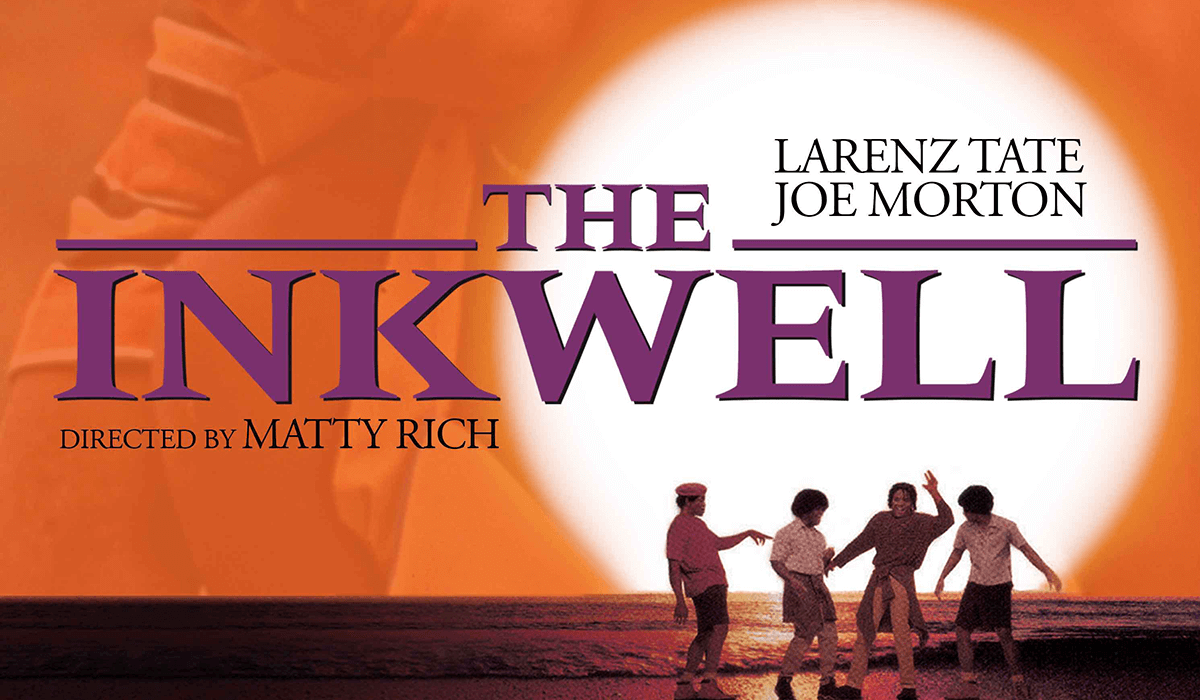Starring: Larenz Tate, Joe Morton, Suzzanne Douglas and Jada Pinkett
Rated: R Comedy/Drama/Romance
This title of this film is a moniker given to Town Beach in Oak Bluffs, the area populated by African-Americans at Martha’s Vineyard of the Cape Cod islands of Massachusetts. The beach, frequented by Blacks since the late 1800s, was derisively called “The Inkwell” by Whites and it was in reference to Blacks’ skin color. According to the submission on “The Inkwell, Martha’s Vineyard” of BlackPast website, Town Beach “is the most famous of beaches across the U.S. to transform this odious nickname into an emblem of pride.”
The Inkwell is a coming-of-age film that centers upon the themes of race pride, first love, adolescence versus adult responsibility and family. Set during the summer of 1976, Drew Tate (Larenz Tate) accompanies his parents, working class and Black militant Kenny Tate (Joe Morton) and Brenda Tate (Suzzanne Douglas), to visit the affluent family of her sister, Francis Phillips (Vanessa Bell Calloway), at Martha’s Vineyard.
The primary reason for their visit is that Drew’s parents worry that he, a shy, 16-year-old, is emotionally unstable and immature, especially since his best friend is a doll, Iago, with whom he converses. Drew also set a fire at their family home in upstate New York so during his visit to the Vineyard, he has counseling sessions with Dr. Wade (Phyllis Yvonne Stickney).
When there, Drew tries to remain balanced in his new environment, that includes his freewheeling and streetwise cousin, Jr. Phillips (Duane Martin); his ultra-conservative uncle, Spencer Phillips (Glynn Turman); the snobbish user, Lauren Kelly (Jada Pinkett); the kind and understanding neighbor, Heather Lee (Adrienne-Joi Johnson); and her cheating husband, Harold Lee (Morris Chestnut).
For many fans of The Inkwell, themes featured in this film spoke to their African-American heritage and the trials and triumphs, that accompany it. The ire and cynicism of some critics who panned this film is, to be certain, rooted in they’re not being African-American. Film critic and historian Roger Ebert, who is not African-American but whose wife is, wrote of these nuances being unexpected, absent even, in the psyche of White America. Aside from being the co-host of At the Movies, Ebert was the first film critic to win a Pulitzer Prize for Criticism.
In his review for The Chicago Sun-Times, for which he wrote from 1967 until his passing in 2013, Ebert detailed, “The Inkwell tells the story of a 16-year-old kid whose family spends a couple of weeks on Martha’s Vineyard in the summer of 1976. His uncle and aunt, who have a house there, are wealthy Republicans, with a portrait of Richard M. Nixon on the living room wall. But they like to party, and soon the hero, named Drew, meets the other young people in the area and finds himself falling in love for the first time.
The movie is a coming-of-age comedy with a Summer of ’42 twist at the end, and all of the obligatory stops in between: The bonfire on the beach, the Fourth of July parade, the first kiss with fireworks exploding in the air, the parents fighting and the kids exchanging great and solemn truths beneath the moon.
There is a difference, though. All of the characters in the movie are African-Americans. And the “Inkwell” is the name of a beach on Martha’s Vineyard where the Black bourgeoisie have owned summer homes for decades. For most American moviegoers, the world of this movie will be as unfamiliar as the other side of the moon.”
Sadly, many mainstream films featuring aspects of Black life center around stereotypes, primarily negative ones, so films like The Inkwell indeed seem as “unfamiliar as the other side of the moon.” Fortunately, there are those like writer Paris Qualles and director Matty Rich of The Inkwell, who believe in the diverse aspects of Black life and worked hard to bring those aspects to film.
Larenz Tate, who starred as “Drew Tate”, spoke of this necessity in an interview with Hip-Hop Wired. Having just starred as the gangster, “O Dog” in The Hughes Brothers’ Menace II Society, Tate commented on his following role in The Inkwell, which released several months after Menace. In his commentary, Tate cheered on the myriad components that comprise Black life in the United States, celebrating, “We weren’t known to be a diverse audience, which we are. We can see Menace, we can The Inkwell, we can see them all at the same time. So, it was really good to see that, over the years, ‘The Black Experience’. They do go on vacation; they do fall in love; they have these adolescent, coming-of-age stories just like everybody else. It (The Inkwell) is just a regular story that reflected our culture and I was happy to be the lead in the film and people still love it … That movie still resonates and means something to people!”

